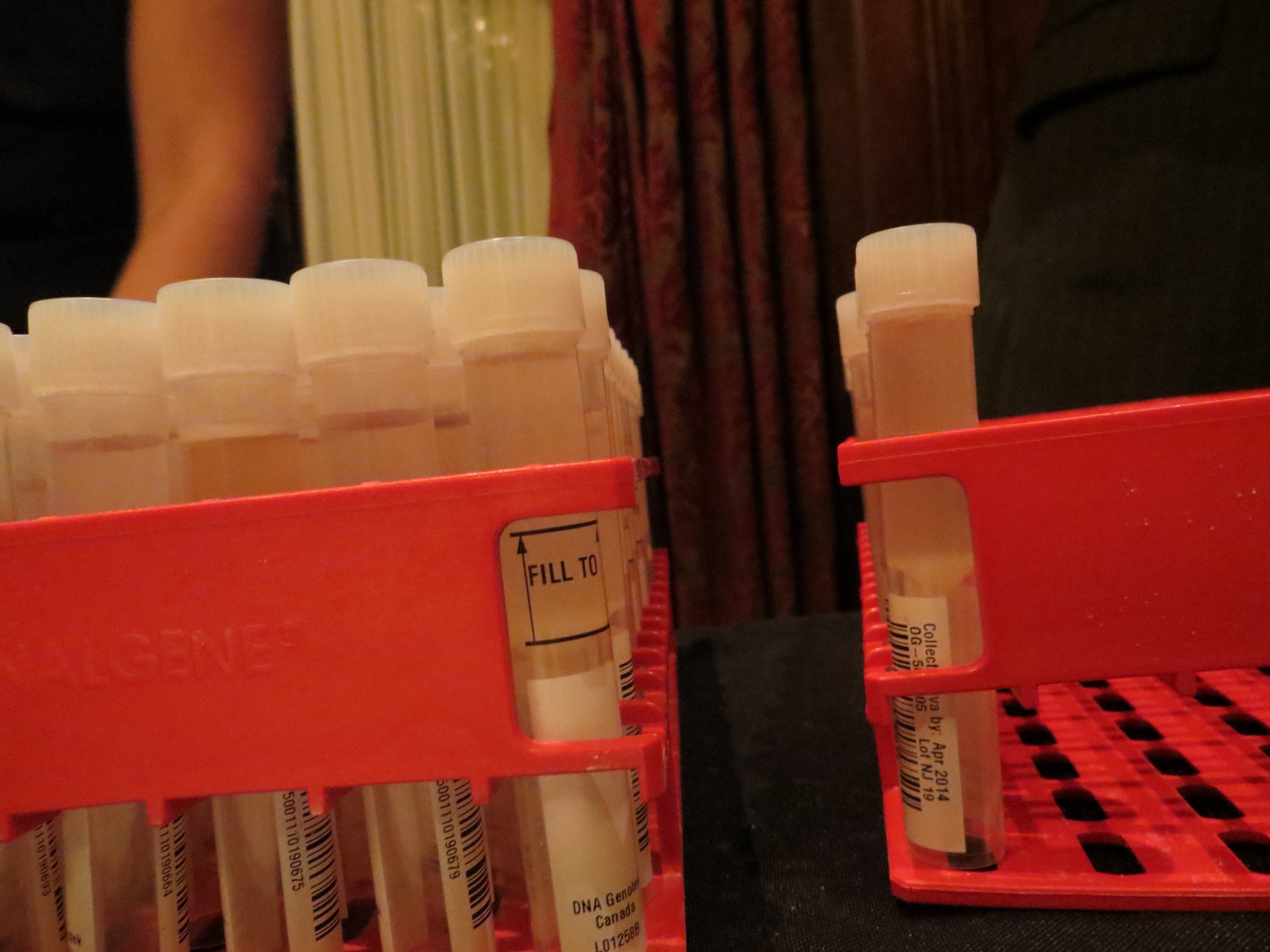Exploring the reality and promise of genetic testing
Listen
The Coriell Institute in Camden
Randy Scott, CEO of Invitae, which offers genetic tests through physicians, speaks with The Pulse’s Taunya English about the promise of genetic testing.
It’s been more than a decade since a team of international researchers announced it had sequenced the human genome. What followed were big hopes to use genetic testing to offer personalized—precision–medicine.
In the Philadelphia region, The Coriell Institute in Camden, N.J., is studying the ethical and health care implications of genetic testing. About 8,000 people are enrolled in the study.
Participants learn whether they’ve inherited a greater-than-average risk for certain conditions.
“The technology that we use now looks at a million SNPs, a million variants in your genome—kind of like a typo in your genes,” said Coriell genetic counselor Erynn Gordon.
In recent years, some companies—including 23andMe–have moved to cash in by offering direct-to-consumer genetic tests. As the cost of those tests dropped below $100, some health experts and regulators became skeptical about how those tests will guide medical decisions. In 2013, after the U.S. Food and Drug Administration issued a warning letter, 23andMe stopped offering health-related results.
“The FDA warning was inevitable, the only question was when they would get involved,” said University of Pennsylvania biomedical ethicist Jonathan Moreno. “The agency doesn’t like to discourage business activity so for them, to go so far as to issue a warning means they were very concerned.”
Beyond curiosity, it’s not clear what people expect to do with the direct-to-consumer information. There aren’t definitive answers yet, Moreno said, about how your genetics extends your life or changes your quality of life.
“The best advice is still: Get eight hours of sleep, eat a balanced meal, probably–check your cholesterol, eat fiber, live in a place where there aren’t a lot of gun shots, don’t cross the street if there are lot of trucks around and choose your parents wisely,” Moreno said.
Moreno wants to see more people trained to translate and educate consumers about their genetic information.
“Somebody who’s gotten information that indicates that they have say: a doubling of the risk of a disorder that they are worried about, that may mean that they’ve gone from a two percent to a four percent risk. People have to understand the difference between absolute and relative risk,” Moreno said.
Genetic information is helping to guide treatment decisions today, but is moving very slowly into routine medical practice.
While in Philadelphia for a keynote talk at Jefferson University’s Population Health conference Randy Scott spoke with Senior Writer Taunya English about today’s realities—and the promise of genetic testing. Scott is chief executive officer of Invitae, which offers genetic tests available through a physician.
WHYY is your source for fact-based, in-depth journalism and information. As a nonprofit organization, we rely on financial support from readers like you. Please give today.



